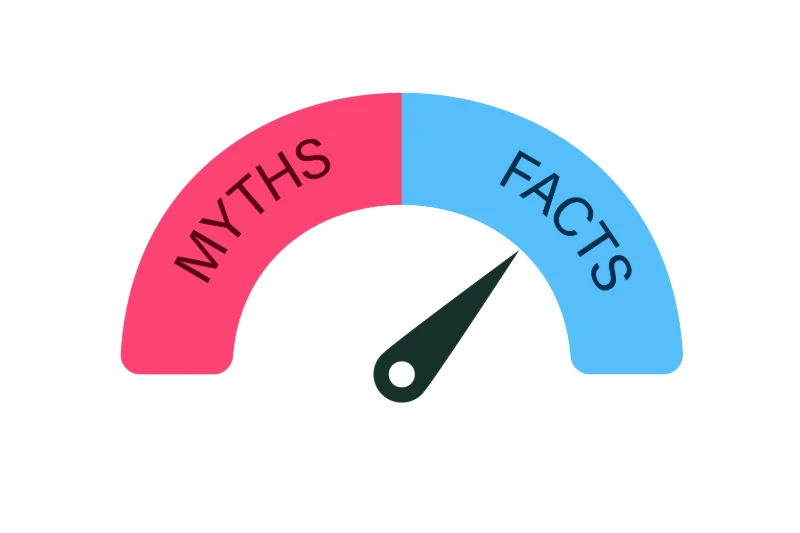What Is Escrow and Why Do I Need It?

Understanding Escrow AccountsWhen you’re buying a home, you’ll hear a lot of new terms—one of the most important is “escrow.” While it might sound technical, escrow is simply a tool that helps manage and protect certain parts of your mortgage and homeownership.An escrow account is set up by your mor
Read MoreCredit Health and Mortgages: What to Know Before You Apply

Credit Matters More Than You ThinkWhen preparing to buy a home, your credit score becomes more than just a number—it’s a key part of your financial identity. While it’s not the only factor in qualifying for a mortgage, it plays a major role in determining what loan products might be available to you
Read MoreSpring 2025 Housing Market: What Buyers Need to Know

Why Spring is a Prime Time for Real EstateSpring consistently ranks as one of the most active seasons in real estate—and for good reason. The weather improves, daylight lasts longer, and families often prefer to move before the next school year. In 2025, we’re seeing a particularly energized market
Read MoreShould You Buy a Home and Renovate or Buy Move-In Ready?

When it comes to buying a home, one of the big decisions many buyers face is whether to purchase a fixer-upper and renovate or go for a move-in-ready property. Both options have their pros and cons, and the right choice really depends on your goals, timeline, and comfort level.Buying a Fixer-Upper:
Read MoreHow to Improve Your Mortgage Approval Chances

Getting approved for a mortgage is an exciting step toward homeownership, but it requires careful financial planning. Lenders look at various factors to determine your eligibility, and small improvements can make a big difference. If you’re preparing to apply for a mortgage, here are some key steps
Read MoreAchieving Real Estate Success: The Essential Practices of Self-Integrity and Accountability

In the world of business, Success is about building a foundation of trust, reliability, and excellence. I often emphasize two critical concepts that serve as the bedrock of a successful career: Self-Integrity and Accountability. These two principles are not just abstract ideals; they’re actionable c
Read MoreCommon Mortgage Myths Debunked

When it comes to getting a mortgage, there’s no shortage of misinformation. Many homebuyers, especially first-timers, hesitate to apply because they believe common myths that simply aren’t true. To help you move forward with confidence, let’s debunk some of the most widespread mortgage myths.Myth #1
Read MoreHow to Choose the Right Mortgage Lender or Broker

Choosing the right mortgage professional is a critical step in the home-buying process. Whether you work with a mortgage lender or a mortgage broker, the decision can impact your loan options, interest rate, and overall experience. Here’s how to determine which option is best for you and what to loo
Read More-

We’re at an interesting junction in history at this time – there are so many shifts and changes not only in the real estate industry but also in the fields of education, finance, technology and politics. It’s unnerving for people, as change typically is, and if you’re plugged into mainstream media,
Read More Why You Should Opt Out of Prescreened Credit Offers

Why You Should Opt Out of Prescreened Credit Offershttps://www.optoutprescreen.com/When you apply for a mortgage or any type of loan, you expect to hear back from your lender. But what you might not expect is a flood of unwanted calls and offers from lenders you’ve never heard of. This happens becau
Read MoreThe Do’s and Don’ts of Applying for a Mortgage

Applying for a mortgage is an exciting step toward homeownership, but it’s important to approach the process carefully. Certain financial decisions made before and during the application process can impact your approval and loan terms. To help ensure a smooth experience, here are some key do’s and d
Read MoreHow Rising Interest Rates Impact Your Homebuying Power

Interest rates are one of the most important factors to consider when buying a home. They directly influence how much you’ll pay each month on your mortgage and, ultimately, how much home you can afford. When rates rise, it can affect your budget and decision-making process, so understanding their i
Read MoreVA Loan Entitlement Options for Military Couples

VA Loan Entitlement Options for Military CouplesAre you and your spouse both serving—or have served—in the military? In this post, we’ll explore how VA loan entitlement works for military couples. We’ll also cover key tips for maximizing benefits, especially if you’re looking to buy property in Colo
Read MoreGrossing Up Income for a Mortgage

Wondering how non-taxable income factors into your mortgage approval? In this post, we’ll explain what “grossing up” income means, why it matters, and how it’s handled differently by various loan programs in Colorado. Whether you’re exploring Colorado Springs real estate or just want to strengthen y
Read More5 Tips for First-Time Homebuyers

Buying your first home is an exciting milestone, but it can also feel overwhelming. As a first-time buyer, you’re likely navigating unfamiliar territory with a lot of questions about the process. To help you start your homeownership journey with confidence, here are five tips to keep in mind.1. Star
Read MoreThe Importance of Building Equity in Your Home

For many homeowners, building equity is one of the most rewarding aspects of owning a property. Equity represents the portion of your home that you truly own—the difference between your home’s market value and what you owe on your mortgage. Understanding how equity works and its potential benefits c
Read MoreFirst Time Home Buyer Essentials

First Time Home Buyer EssentialsTaking the leap into homeownership is an exciting journey. Whether you’re a first-time homebuyer in Colorado Springs or anywhere else in Colorado, having the right knowledge can simplify the process. This guide will help you understand how to qualify for different mor
Read MoreUnderstanding the Benefits of a VA Loan for Veterans and Service Members

For veterans, active-duty service members, and eligible surviving spouses, a VA loan offers a powerful way to achieve homeownership. Backed by the U.S. Department of Veterans Affairs, VA loans are designed to make buying a home more accessible for those who have served our country. Here’s what makes
Read MoreHow to Buy a House with Low Income

Are you wondering how to buy a house with low income in Colorado Springs or anywhere in Colorado? It might feel overwhelming at first, but there are specific loan programs, down payment solutions, and strategies that can turn your homeownership goals into reality—even if your income is limited. In t
Read More-

Creating a truly childproof-house can feel overwhelming. However, with the right baby proofing strategies, you can keep your child safe at every stage. This guide offers safety essentials to help you tackle potential hazards room by room, ensuring peace of mind for the whole family—whether you’re in
Read More
Categories
Recent Posts











